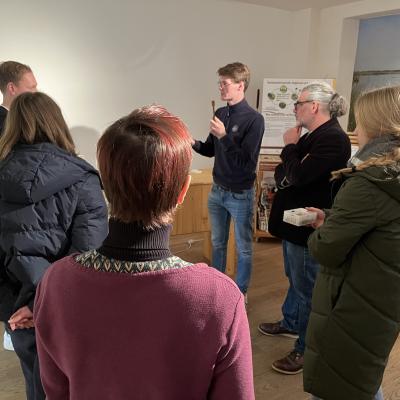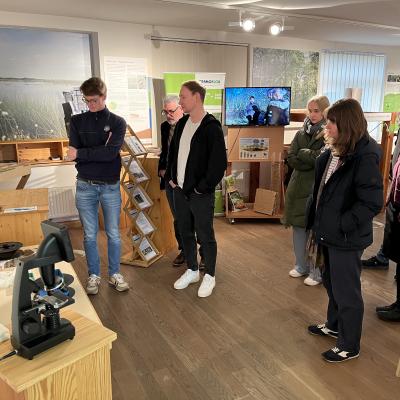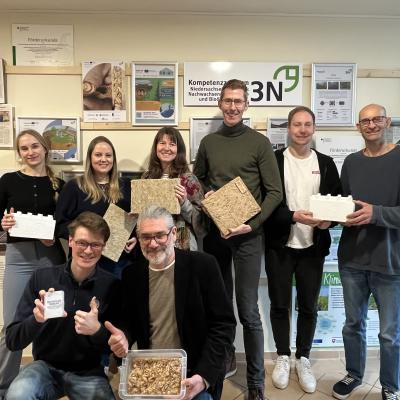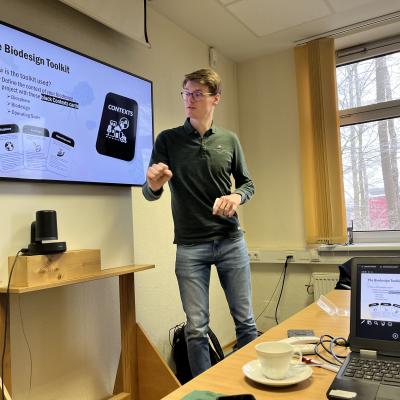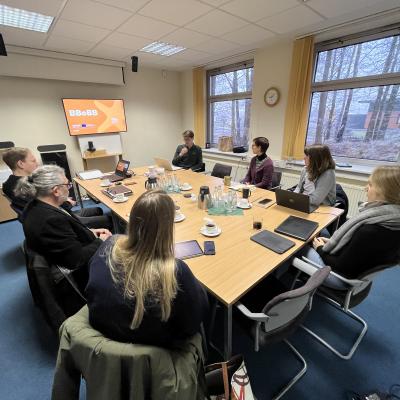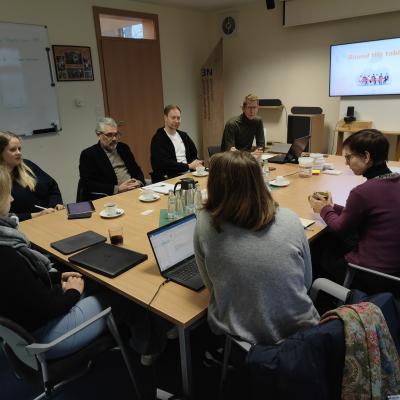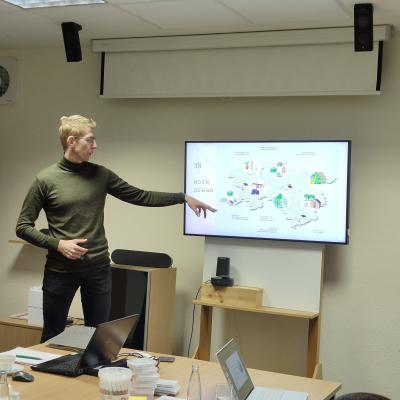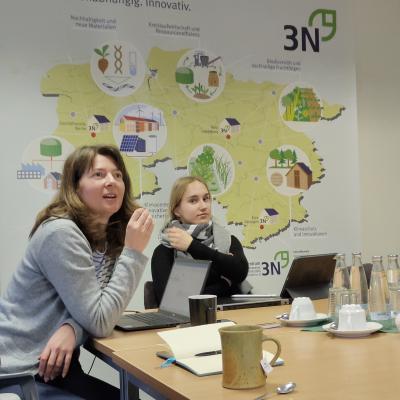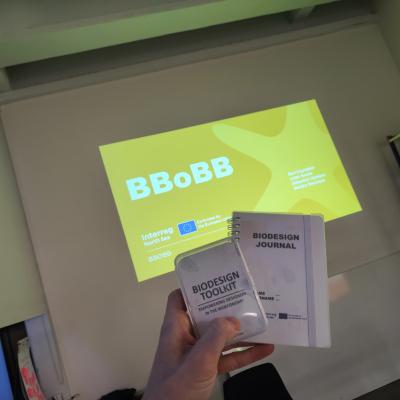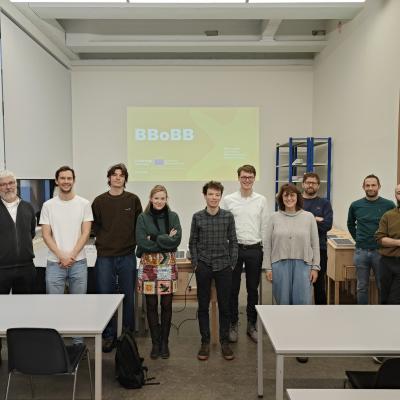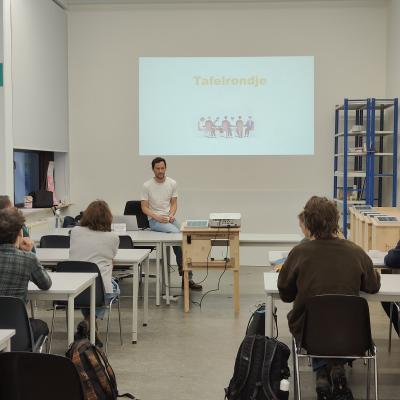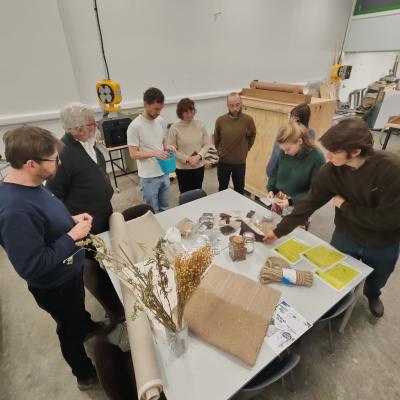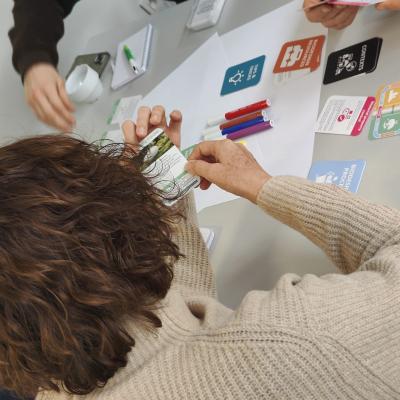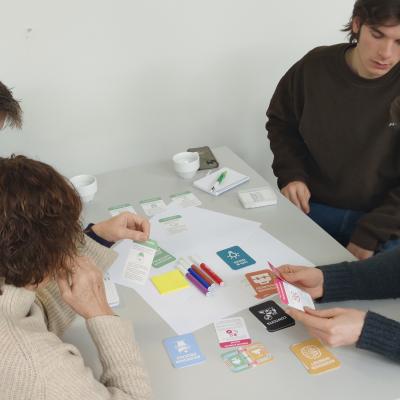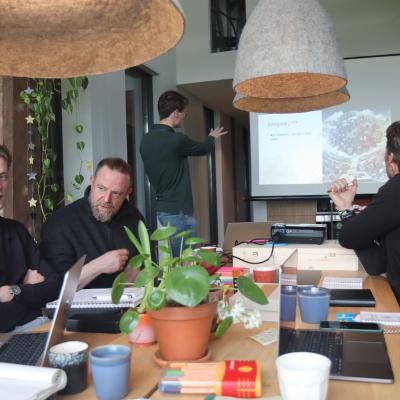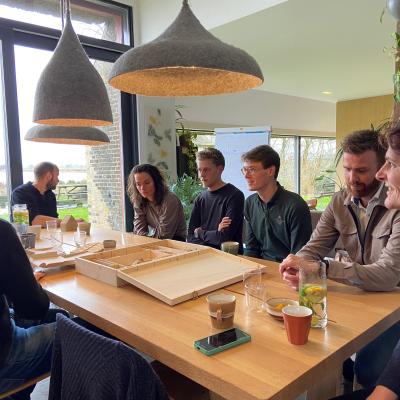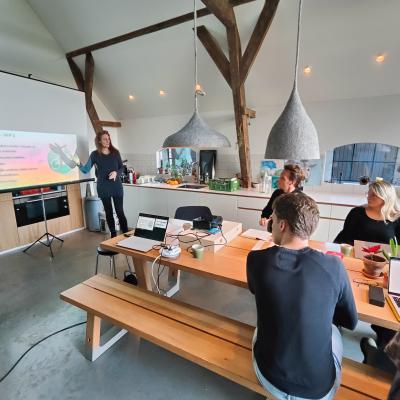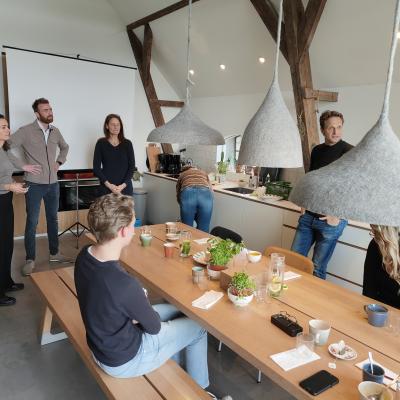The first Biodesign workshops of the BBoBB project started in January. In each NSR region, selected designers were invited to get to know the local crops they will be working with to develop a new product. The crops differ per region, but some examples are hemp, miscanthus, flax and cattail.
During the workshop, the designers were introduced to the regenerative, circular economy and learned how to make their project more regenerative and circular using the new Biodesign design methodology. They were also provided with the new Biodesign toolkit, which should support them in their exploration of the local bioeconomy, taking into account our man-made world and the biosphere. Biodesign is therefore the design discipline par excellence in which we design “with”, “for” and “of” nature.
The Biodesign Toolkit
The Biodesign Toolkit was created by our Belgian partners Design.Nexus (Ghent University) in the context of Bert Vuylsteke's doctoral research and was co-facilitated by the Province of Friesland. This toolkit informs designers about all elements inherent to biodesign, inspires them and ultimately encourages them to take action. The toolkit helps designers to reveal blind spots, break through design blockages, reflect on steps, progress and decisions, and take action.
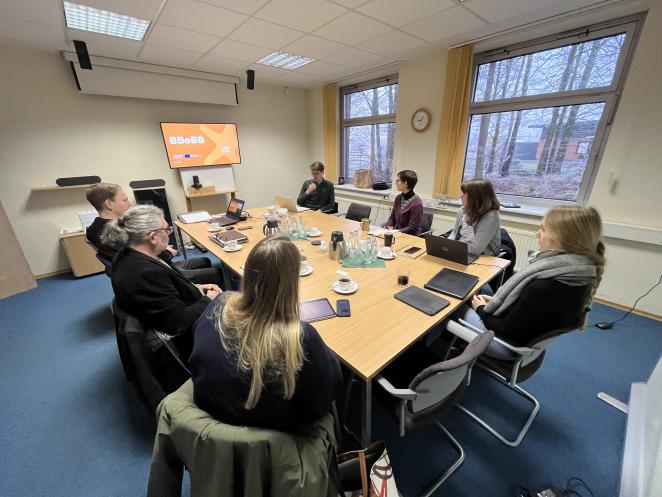
Pilot projects
Each NSR region makes its own choice of what exactly the designers will have to develop. Some regions leave the end result free and open, such as the Belgian partners. Other regions will focus on a specific product for which there is already a market and demand, in order to directly establish that value chain link, such as the Dutch partners. The Danish partners, then, focus specifically on an architectural and construction assignment, in which a demonstration house is developed made from locally grown crops.
We are very excited about the results of the Biodesign workshops and are looking forward to the next steps in the BBoBB project. We are curious about the different demonstration projects that the designers will develop and the valuable insights that we will gain from the different design trajectories. We believe that these projects will make an important contribution to the development of a more regenerative and circular economy.
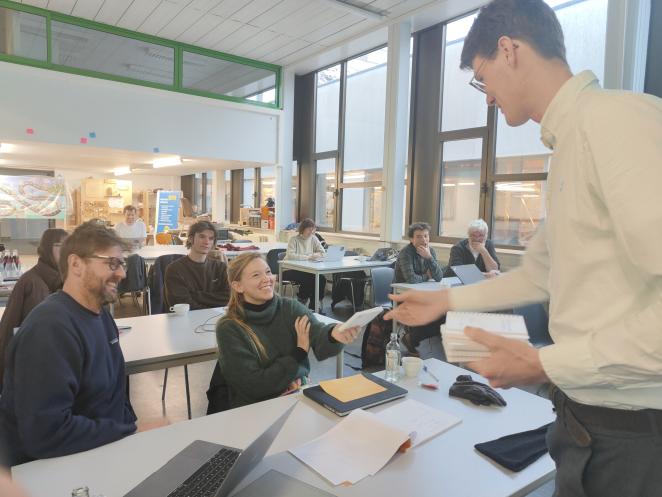
Stay informed
Do you want to stay informed about the developments within the BBoBB project? Then follow us on our website and social media channels. We will regularly share updates on the progress of the projects and the results of the Biodesign workshops.

